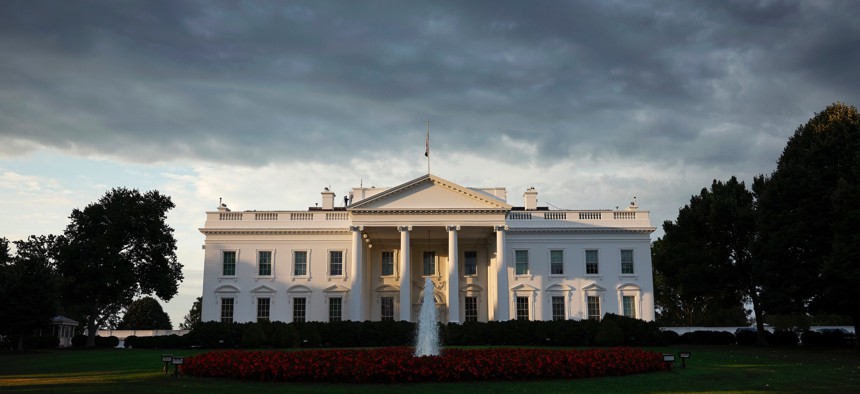
U.S. District Judge Paul Friedman issued the finding Monday in a 46-page opinion explaining his decision last week to enjoin the administration from implementing the March executive order, following a lawsuit from the National Treasury Employees Union. Kevin Dietsch / Getty Images
Judge: Trump’s national security reasoning for anti-union EO was 'pretext for retaliation'
Even when taken at face value, U.S. District Judge Paul Friedman said the White House did not meet the evidentiary bar to prove that collective bargaining was incompatible with national security considerations for the majority of federal agencies.
A federal judge on Monday wrote that President Trump’s controversial invocation of a provision of the 1978 Civil Service Reform Act to strip two-thirds of federal employees of their collective bargaining rights on national security grounds was “mere pretext” for retaliating against unions resistant to his workforce policies.
U.S. District Judge Paul Friedman issued the finding Monday in a 46-page opinion explaining his decision last week to enjoin the administration from implementing the March executive order, following a lawsuit from the National Treasury Employees Union.
“The scope of the executive order when compared with the intent of Congress in passing the [Civil Service Reform Act], coupled with the surrounding statements in the [White House] fact sheet and [Office of Personnel Management] guidance—which strongly suggest that President Trump’s invocation of [the statute’s national security exemption] was mere pretext for retaliation and for accomplishing unrelated policy objectives—are persuasive reasons to believe NTEU will likely be successful on the merits of its claim,” Friedman wrote.
In federal courts, judges generally are expected to assume that government officials properly discharged their duties, a concept called the “presumption of regularity.” But Friedman found that the White House and OPM’s public explanations for the executive order, as well as the exemption of some law and immigration enforcement unions from the edict, override that presumption.
“In sum, the OPM guidance says little about national security, notwithstanding the national security valence of [the statute]," he wrote. “On examination, the OPM guidance and the executive order appear to be more about accomplishing the administration’s goal of substantially changing the nature of the federal workforce. The OPM guidance lists numerous examples of earlier policy directives by the president and OPM, identifies the difficulties collective bargaining agreements posed to accomplishing those directives, and states that those obstacles are now gone as a result of the executive order ... Indeed, it is strong evidence that the president’s invocation of [the national security exemption] was to remove barriers created by the [labor statute] to his unrelated policy objectives.”
Even when taken at face value, the judge found that the president’s determinations, which involved shuttling entire agencies outside of the federal sector labor statute when only a mere fraction of their work implicates national security, did not meet the standard that an agency subcomponent must have a “primary function’ of national security in order to be exempted from the law.
“While the government never explicitly states how it interprets ‘primary function,’ its arguments related to each of the agencies and subdivisions reflect either an overly broad interpretation of the term or a disregard of the term entirely,” Friedman wrote. “The government’s arguments related to each of the agencies and subdivisions illustrate this point by either pointing to generalized mission statements of the agencies referencing national security, or by pointing to individual functions that segments of the agencies or subdivisions perform that have a national security valence, and then concluding that the entire agencies’ or subdivisions’ ‘primary function’ is national security.”
Though unions typically fail in lawsuits against employing agencies in district court, because they are required to first pursue their claims before the Federal Labor Relations Authority, Friedman said the executive order precludes their ability to seek redress, as the FLRA does not hold jurisdiction at agencies that have been excluded from the statute. And the FLRA has already indicated it would dismiss a complaint filed by NTEU in relation to the executive order.
“The administrative review scheme, however, is not available to challenge the executive order’s exclusion of the agencies and subdivisions subject to the executive order for the simple reason that those agencies and subdivisions have been excluded from the [statute’s] coverage by the very executive order at issue here,” he wrote. “Indeed, the exact case the government contends NTEU should bring to the FLRA was attempted in 2002 in the context of a different executive order invoking the [national security exemption], and the FLRA dismissed the case for lack of jurisdiction.”







